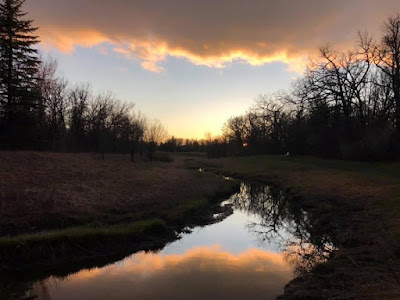I was going to write a post about how AI has ruined photography, starting with a quote from Hannah Arendt about how lying isn’t aimed at getting people to believe a lie but to make it impossible for them to believe anything anymore.
But then I found out the quote wasn’t real, and now I really don’t know what to do.
I liked that quote because it encapsulates well my theory that you can’t trust photography anymore—it’s getting harder to tell a real photograph from an AI-generated one.
It’s got to the point that when I see a photo of a beautiful landscape or mountains or sunrise or sunset I immediately think: “Is it real?”
It may well be real. But when you aren’t sure if can trust the photo, or the photographer, photography is on the road to being ruined—you just don't know what you can believe anymore.
It’s that moment of hesitation in your brain, the pause that makes you wonder if things are really what they seem.
Some photographers seem to know this, too. When some share photos of spectacular and glorious sunsets or sunrises on social media, they include a disclaimer: “It’s a real photo!”
Because, of course, they think the viewer might think they cheated and used AI.
And that’s when I thought about Arendt’s quote. It goes like this:
"This constant lying is not aimed at
making the people believe a lie, but at ensuring that no one believes anything
anymore. A people that can no longer distinguish between truth and lies cannot
distinguish between right and wrong. And such a people, deprived of the power
to think and judge, is, without knowing and willing it, completely subjected to
the rule of lies. With such a people, you can do whatever you want."
That quote has come up frequently to describe
Donald Trump and his regular use of lies and fabrication and its impact on many Americans. It also calls up the media game-plan envisioned
by former Trump strategist Steve Bannon, who said the way to deal with reporters was
to “flood the zone with shit.”
Or, to put it another way, to put out so
many lies and falsehoods that reporters can’t keep up and the public, in frustration,
gives up searching for the truth.
But like I said, it turns out the Arendt
quote is false, too. Or, at least not completely accurate. As the official Hannah Arendt page puts it,
“to be honest, the spirit of the quote is very much in line with Arendt’s own
thought. But as far as I can tell, Hannah Arendt never said this or wrote this.
She did, however, say many similar things. Which begs the question: Why would
someone create a fake quotation when so many real ones express a similar
viewpoint? And, does such an altered quotation matter?”
I say yes, it does. It adds to the general
confusion we all feel these days when we see photos online or read articles. Is
it real? Is it true? Or is it just a matter of “truthiness,” a word coined by
comedian Stephen Colbert to mean something that seemed to be true, even if it
wasn’t.
I like how the Arendt page puts it: “The
Arendtian point is that constant lying by a propaganda machine does not lead to
the lie being believed but leads, instead, to cynicism.”
In that case, whether it's real or not sunset
photos or philosopher quotes, call me a cynic, then.
Photo above is real. No, really!

No comments:
Post a Comment